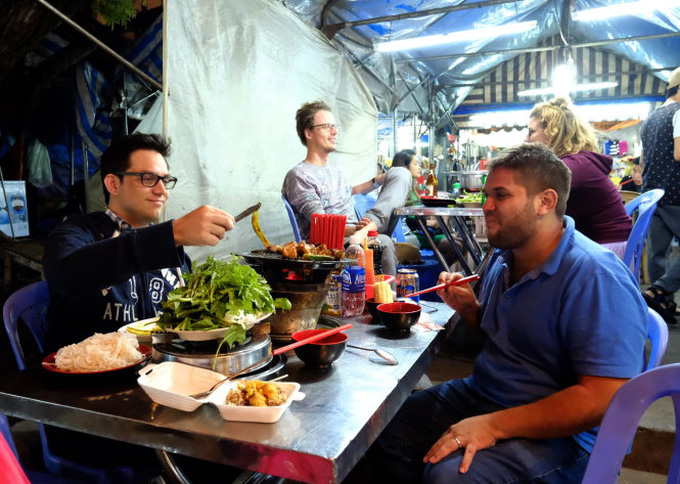That Vietnam has been ranked among the ten best countries for expats is a positive and interesting news report. It is also interesting to know that Vietnam has joined the ranks of such developed countries as Switzerland, Singapore, Australia, New Zealand, and Canada.
First of all, this is a rather prestigious annual survey conducted by HSBC. This year, the survey gathered data from 18,059 overseas workers in 163 locations, and broke the findings into three sub-categories, namely living, career opportunity, and family life. Vietnam placed 12th, 3rd, and 20th against these benchmarks.
The expats surveyed said Vietnam offered living fulfillment, ease of settling in, economic stability, and work/life balance better than 157 other locations. However, it seems that the measurements are merely centered on ‘life enjoyment’ rather than ‘life quality.’
Expats in developed countries with a high cost of living are often associated with a wealthy and educated image, for example diplomats, experts and executives of international organizations and multinational corporations.
But in Vietnam, a developing country where English study is in demand, Western backpackers from the UK or the U.S. are also considered expats.
Some young Americans have a university degree and cannot land a job in their home country. They have moved to Vietnam to teach English to both make a living and explore a new culture. These young people just spend a few months studying for an English teaching certificate and then they can easily find a job that earns them some thousand dollars a month at English language centers, a decent income relative to the cost of living in Vietnam.
With such an income, they can afford comfortable accommodations, buy personal insurance, travel, delight in local cuisine, and enjoy their life.
It is not a surprise when many lauded Vietnam in the work/life balance category. Read the story of this young woman hailing from South Korea. After graduating from a university in Seoul, she worked for a major company. Every day, she woke up at 6:30 am and then she jostled for a space on the subway train on the way to work. She was allowed to take a lunch break for 30 minutes before resuming work until dusk. She quickly grew tired of such monotonous routines.
She then moved to Vietnam, feeling happier and having much more time for traveling and hanging out with friends. But her remarks somehow should be food for thought: “I’ve seen many young Vietnamese frequently spend time in coffee shops or beer parlors. They do know how to balance between work and life.”
So it is safe to say that Vietnam is a “heaven” for expats with a cheap cost of living and friendly and hospitable population.
However, Vietnam should not be liveable for expats only. It should be similarly liveable for the Vietnamese.
In order to build a liveable country for the Vietnamese, the government should think of ways to improve their capability and income, as many Vietnamese have kept saying, “if you are rich, you will feel the happiest living in Vietnam.” Additionally, there needs to be improvement in education, healthcare, and environmental issues.
Providing better quality of life would both help locals thrive and keep foreigners staying longer.
* This is a translation of an article written under the byline of Quynh Trung, originally published in Vietnamese in the July 8, 2019 issue of the Tuoi Tre Daily. The translation has been slightly modified to ensure clarity, consistency, and coherence.
Like us on Facebook or follow us on Twitter to get the latest news about Vietnam!





















































